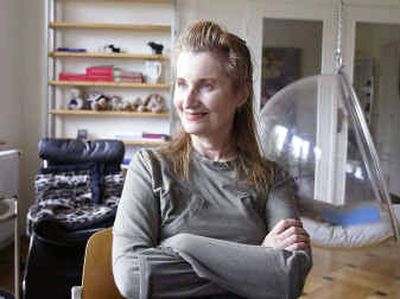Austrian writer wins Nobel

STOCKHOLM, Sweden – Austrian writer Elfriede Jelinek, a reclusive author whose feminism, leftist politics and pacifism are common themes in her works, won the Nobel Prize in literature Thursday for what the Swedish Academy called her “musical flow of voices and counter-voices in novels and plays.”
Her most famous novel, “The Piano Teacher” in 1983, was adapted into a 2001 film by director Michael Haneke, although her other works are well-known in German-speaking countries and she is widely translated in French.
Jelinek, 57, told the Associated Press in Vienna she would not attend the Dec. 10 award ceremony in Stockholm because she suffers from “a social phobia.”
Her latest play, “Bambiland,” written in 2003 and translated into English in 2004, is a strident attack on the U.S. war in Iraq, although Horace Engdahl, secretary-general of the academy, emphasized that the prize should not be interpreted as a political comment.
A sequel to “Bambiland” will appear in May as her first post-Nobel work. Titled “Babel,” it deals with “the torture at the Abu Ghraib prison but also with the mutilation of the bodies of the U.S. soldiers in Fallujah,” Jelinek said.
Although happy about the prize, she said “I can’t stand” the attention that comes with it. With her phone and doorbell constantly ringing, Jelinek said her plans for the coming days were simply “to disappear.”
Jelinek made her literary debut with the collection “Lisas Schatten” in 1967. Her writing took a critical turn after her involvement with the student movements prevalent throughout Europe in the 1970s, coming out with her satirical novel “We Are Decoys, Baby!”
That was followed by other works, including “Wonderful, Wonderful Times” in 1990.
“The Piano Teacher” tells the story of Erika, a demanding piano teacher who embarks on an affair with a younger music student.
Jelinek had a best seller in 1989 with “Lust,” which she has described as portraying “the violence by the man against the woman” in a conventional marriage.